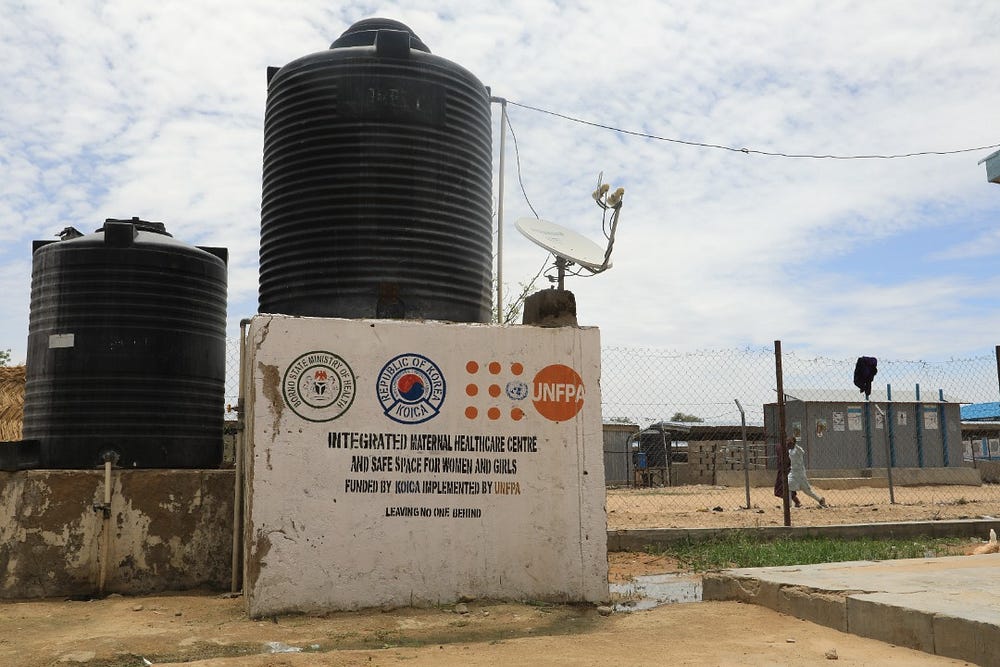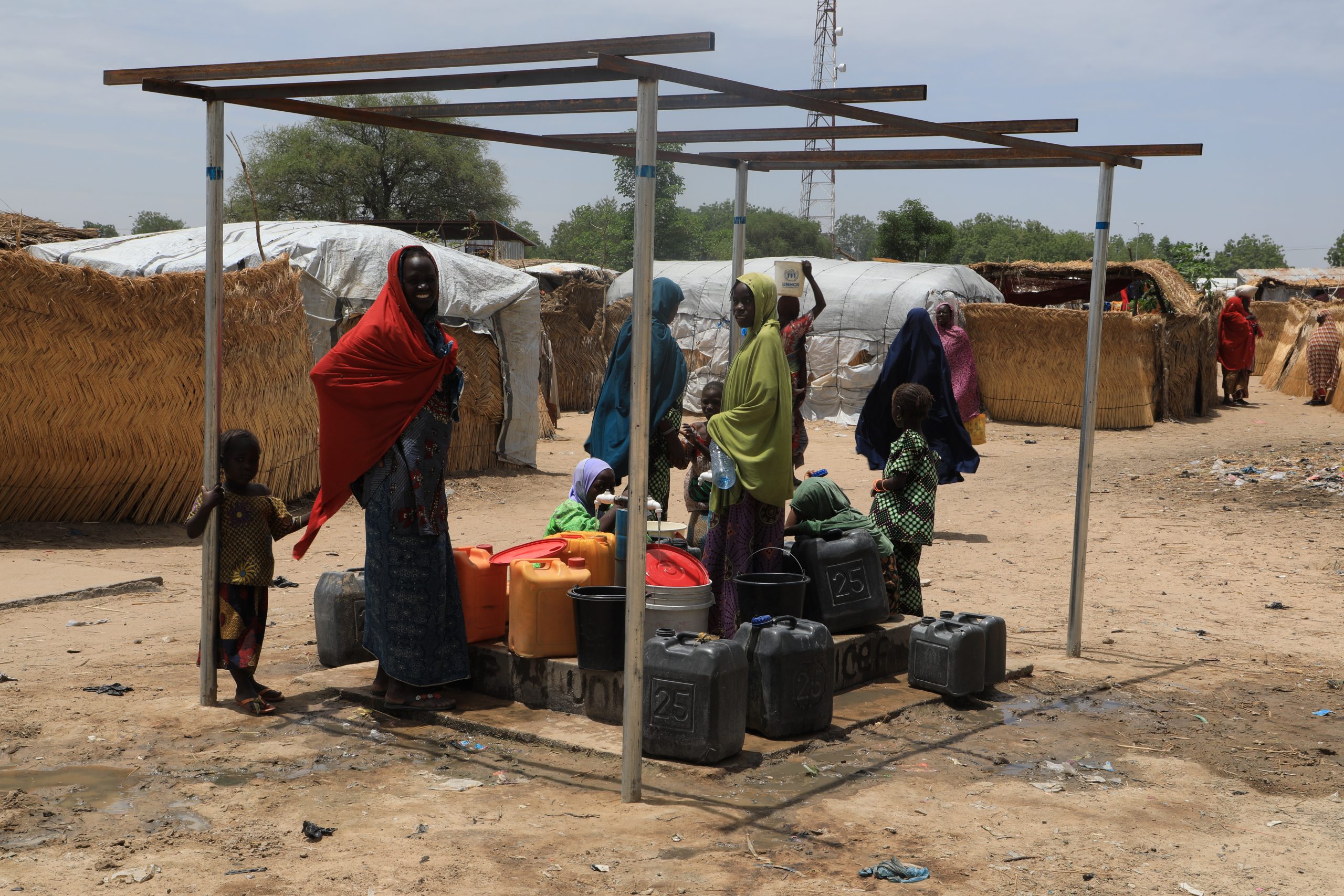By Ibukun Oguntola, Hadiza Mohammed and Samuel Gada (Lead Writers)
The United Nations Population Fund (UNFPA) and Korea International Cooperation Agency (KOICA) in collaboration with the Borno State Government, particularly the Borno State Ministries of Health, Women Affairs, and Budget and Planning, have since 2018 been providing humanitarian assistance to displaced women, girls and vulnerable people in the state by increasing access to comprehensive maternal and child healthcare and increasing access to fistula care.
Obstetric fistula is an inherent public health issue in Nigeria, but it was made worse by elevated levels of poverty and malnutrition, lack of access to emergency obstetric care, poor health systems and lack of skilled birth attendants — all conditions exacerbated by the protracted humanitarian crisis. “Our daughters were suffering. Some of them suffer during childbirth, some died as a result of postpartum haemorrhage, some developed fistula, some have runaway, committed suicide or ended up killing their spouse,” said Fatima Umar, an IDP and a beneficiary of the UNFPA/KOICA project.

Twenty-eight-year-old Zainab Umar lived with her family in peaceful Gamboru Ngala village in Borno State, but they were forced to flee when Boko Haram insurgents invaded their village. “One day, we heard gunshots and soon after, my father’s dead body was brought home. The insurgents killed him, but we could not bury him because we had to run for our lives. We ran to Cameroon, lived there until our government transported us to Mubi in Adamawa State and from there brought us to Gubio IDP camp in Maiduguri. We were suffering in the camp before the UNFPA and KOICA intervention.”
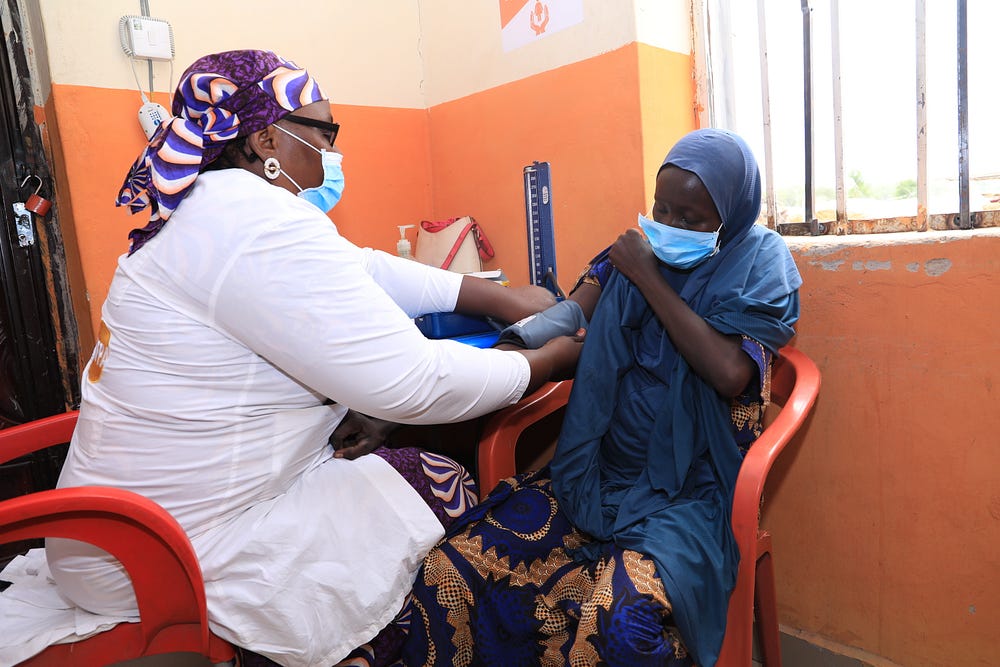
The project aimed to increase access to comprehensive maternal and childcare, access to fistula care and improve capacity for a results-based data management system. To identify the core problem areas, the project team first conducted a needs assessment on the prevalence of fistula within the region. “The increasing number of women suffering from different types of fistula in Borno State necessitated the expansion of services as the 14-bed fistula ward became increasingly insufficient to cater to their needs,” said Dr. Babashehu Mohammed, Director, Emergency Medical Response and Humanitarian Services, Borno State Ministry of Health.
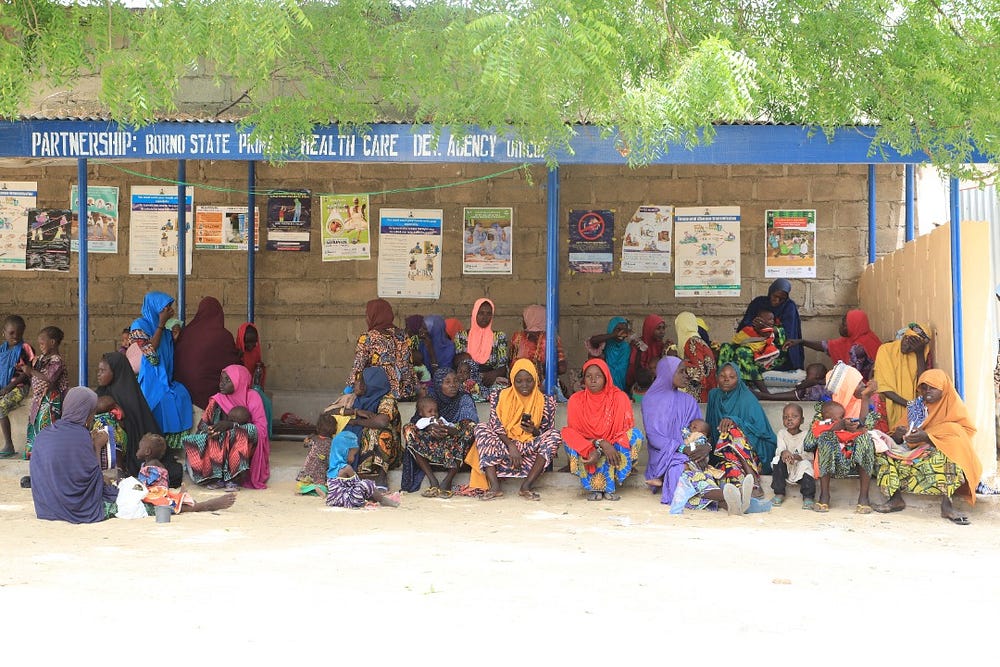
The assessment showed that already existing services within the state needed to be scaled up. This led to the construction of a fully furnished, 40 bed, two theatre capacity fistula centre, and an empowerment centre for the production and assembling of female hygiene kits to protect and promote the dignity of vulnerable women and girls.
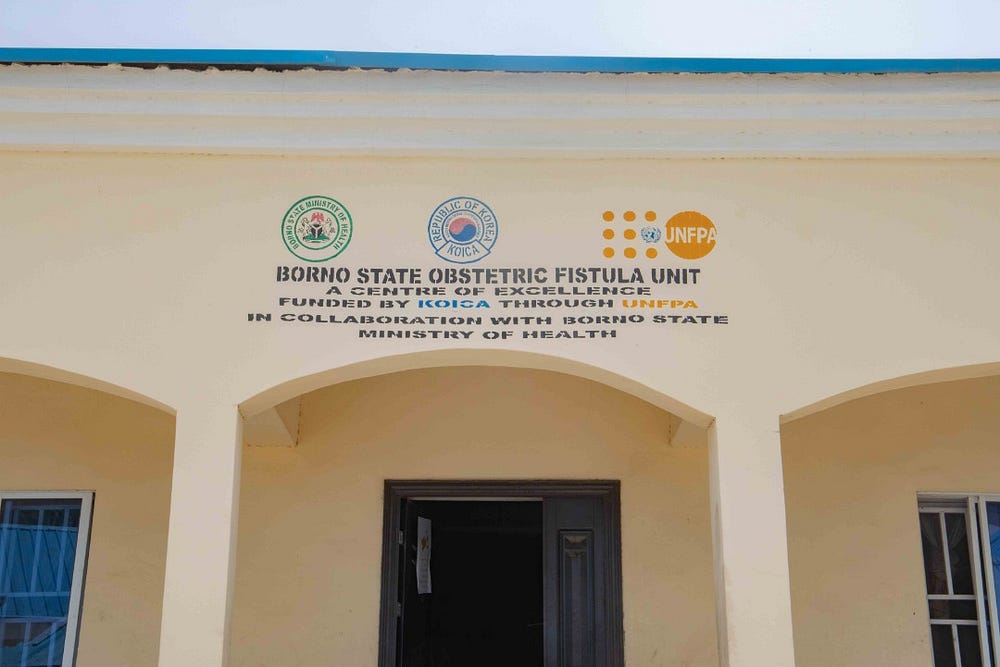
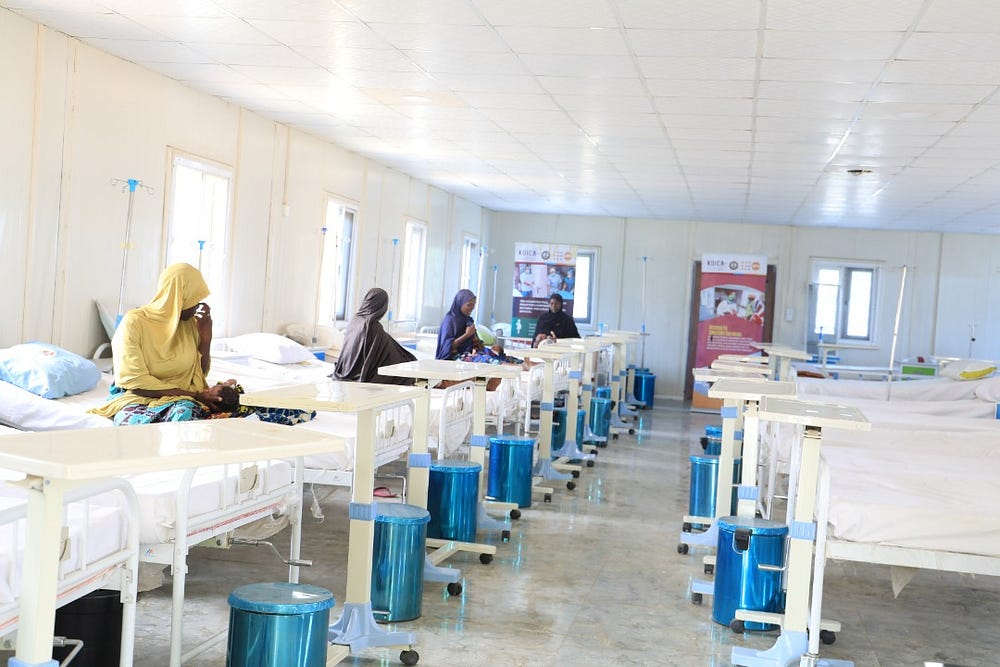
They also trained about 584 frontline health and social workers (doctors, nurses, community health workers and gender-based violence (GBV) caseworkers) — on Minimum Initial Service Package (MISP), Emergency Obstetric and Newborn Care (EmONC), Family Planning and Maternal Perinatal Death Surveillance and Response (MPDSR) — to enhance their ability to provide quality reproductive and maternal health as well as specialised services in an integrated form.
In May 2021, the project established and commissioned the Ultra-Modern Fistula Centre in the Borno State Specialist Hospital, Maiduguri where free fistula repair surgeries were conducted for two weeks every quarter. A total of 626 women have received fistula repair care through these quarterly repair surgeries and a total of 491 fistula patients reintegrated into the community.
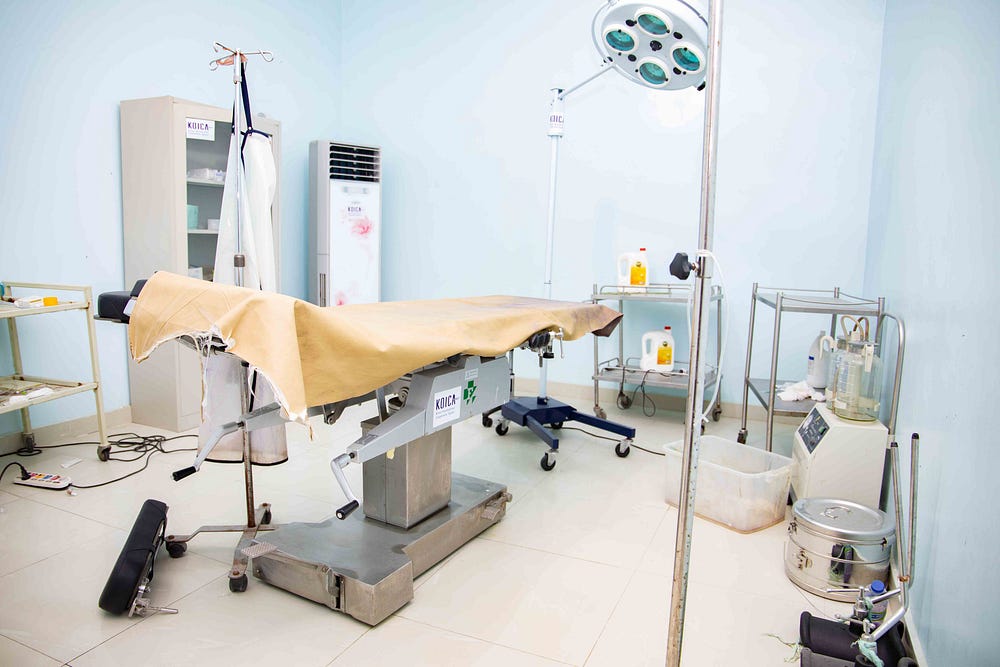
In addition, they provided 11 Women & Girls Safe Spaces (WGSS) offering basic health care services, family planning and sexual health services, as well as a community-based care with early identification and support to GBV victims living in IDP camps. An average of 50 women and girls accessed these centres every week.
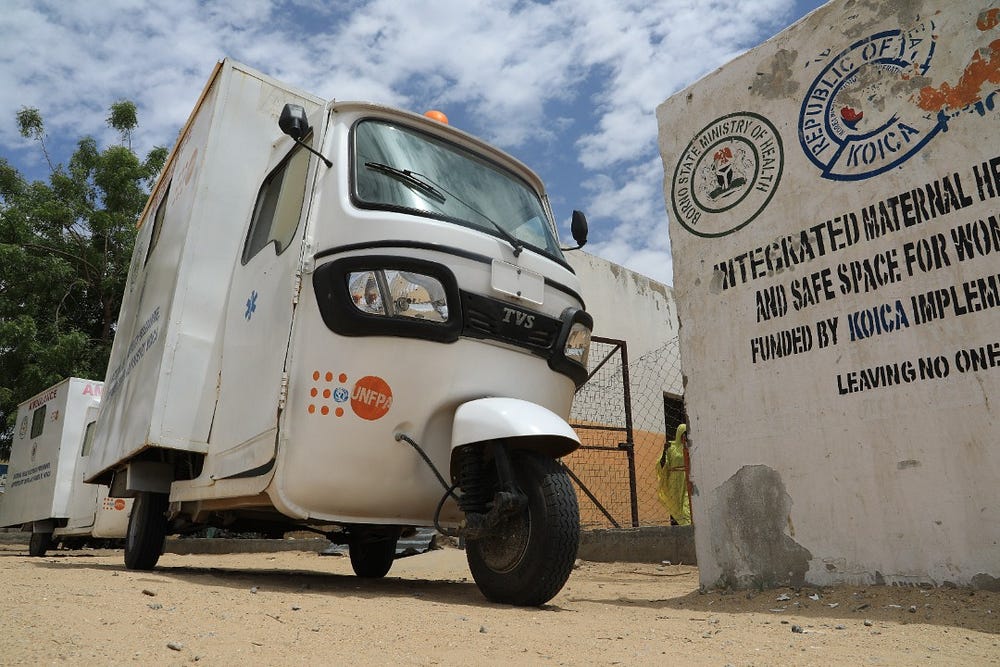
Women’s empowerment and rehabilitation
A critical part of the project was the establishment of a Women and Girls Empowerment Centre where female IDPs and fistula survivors participated in different skill acquisition programmes. Empowering women is essential to the health and social development of families, communities and countries.
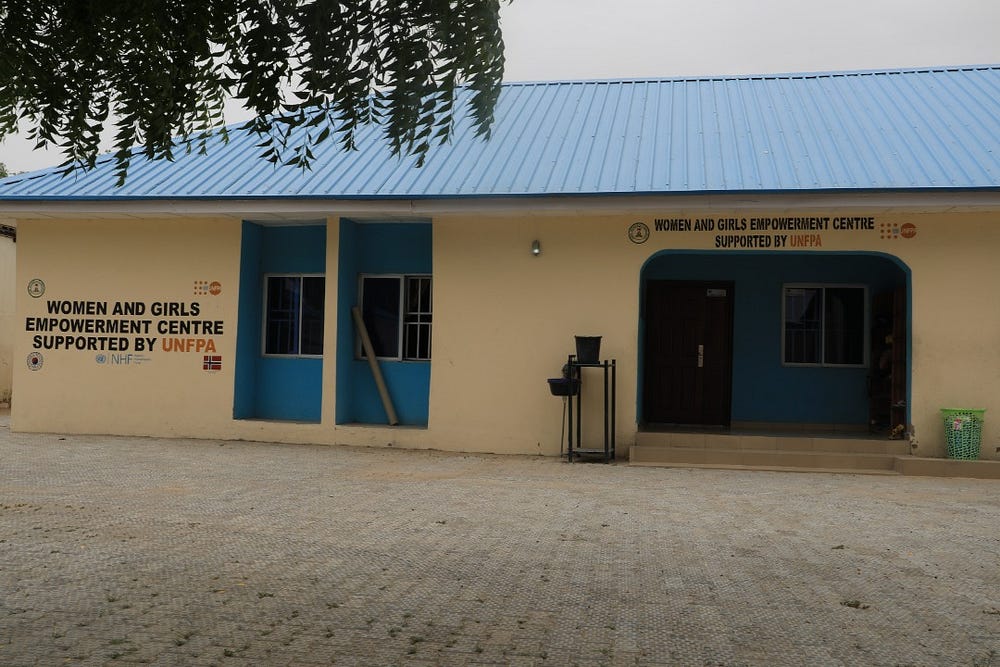
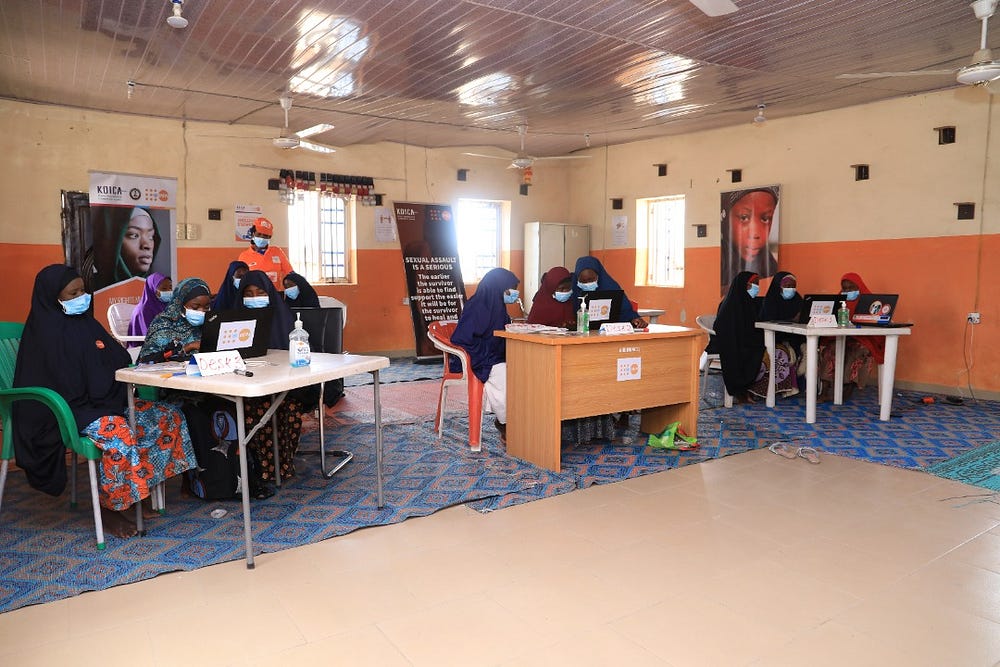
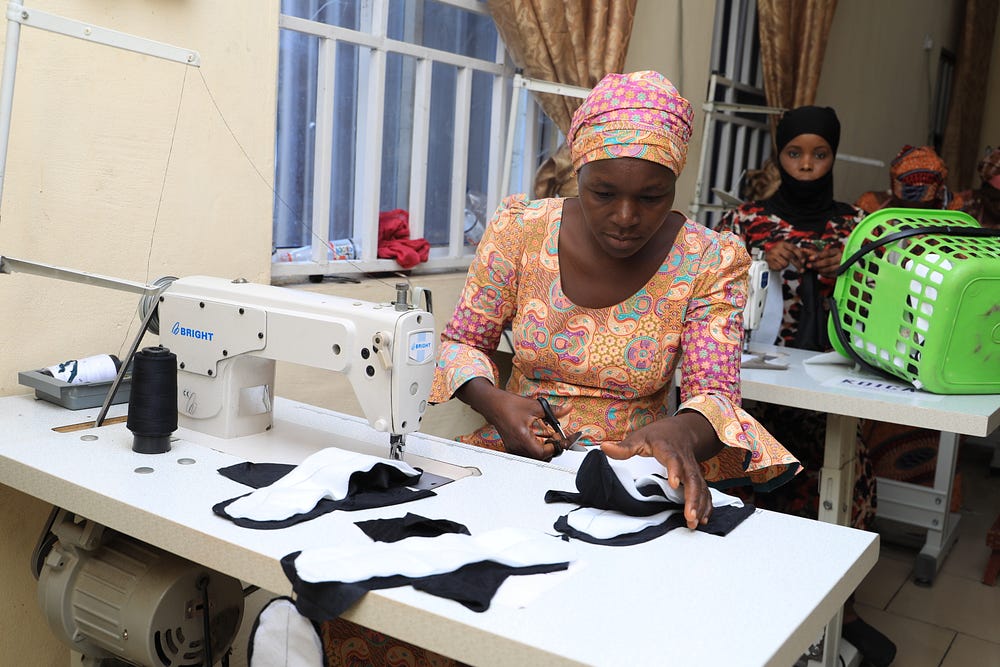
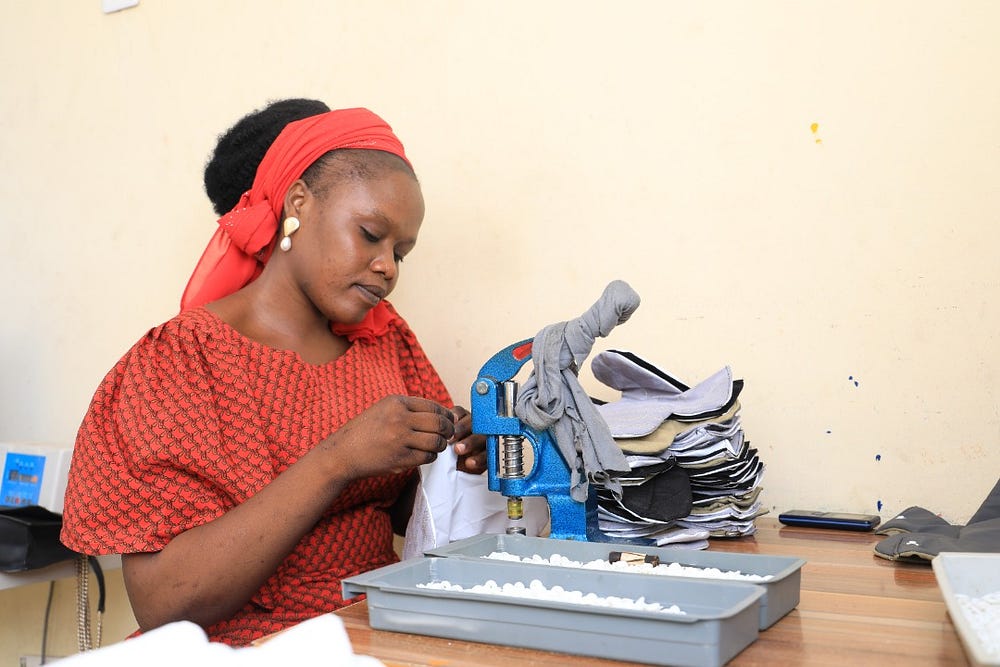
Some of the products made in the empowerment centre were added to a dignity kit, made up of basic supplies to enable the girls and women manage their reproductive health with dignity. A kit contained reusable menstrual pads, bath soap, multiple pairs of underwear, detergent powder, sanitary napkins, a flashlight, toothpaste, a toothbrush, and a comb, a mat, all in a backpack or easy-to-carry bucket. These kits were given out to new mothers and women that had received fistula care.
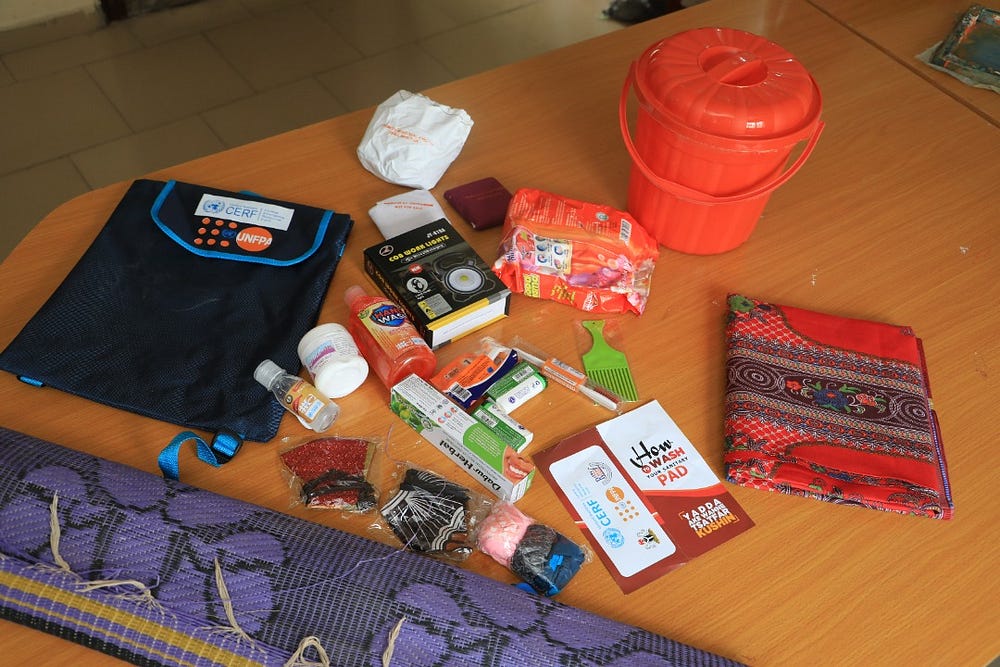
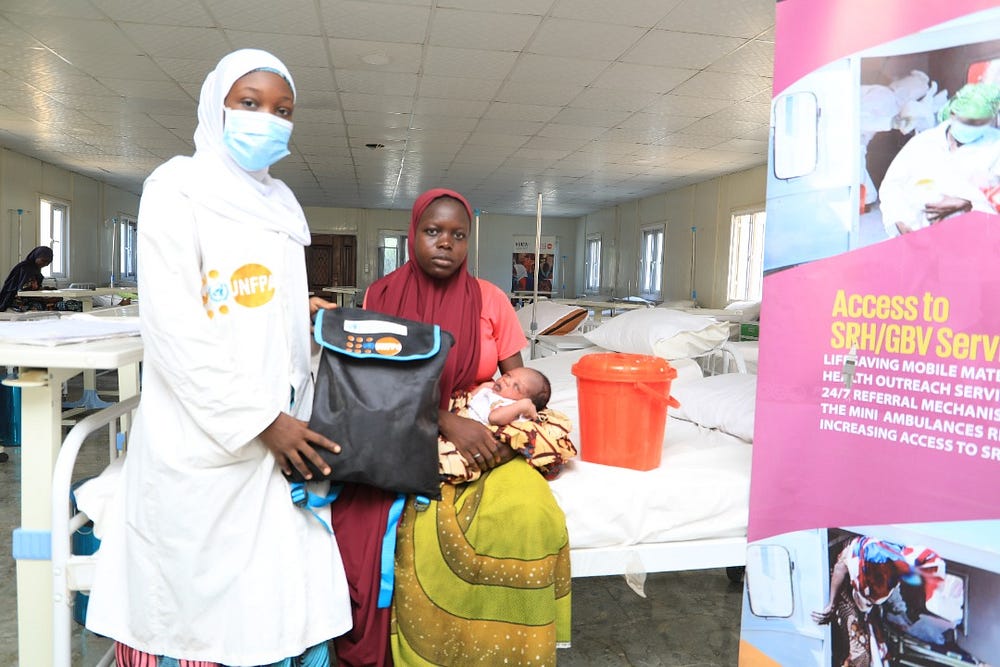
What next?
The project’s approach helped meet the critical needs of a large number of women and girls. Essential services were delivered to approximately 5,299 community members from Maiduguri Metropolitan Council, Jere and Konduga local government areas (LGA).
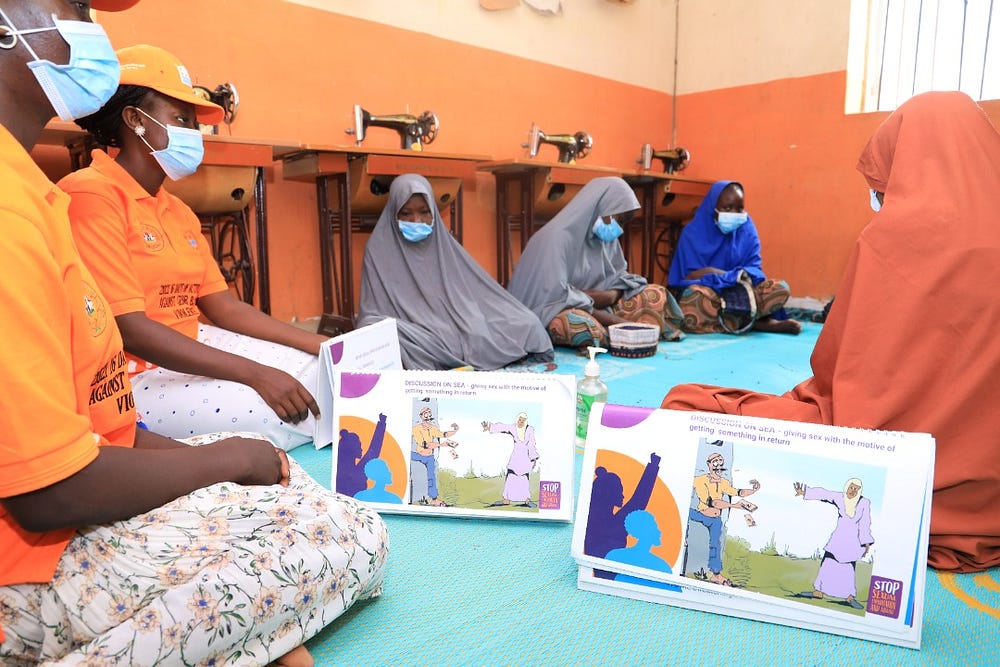
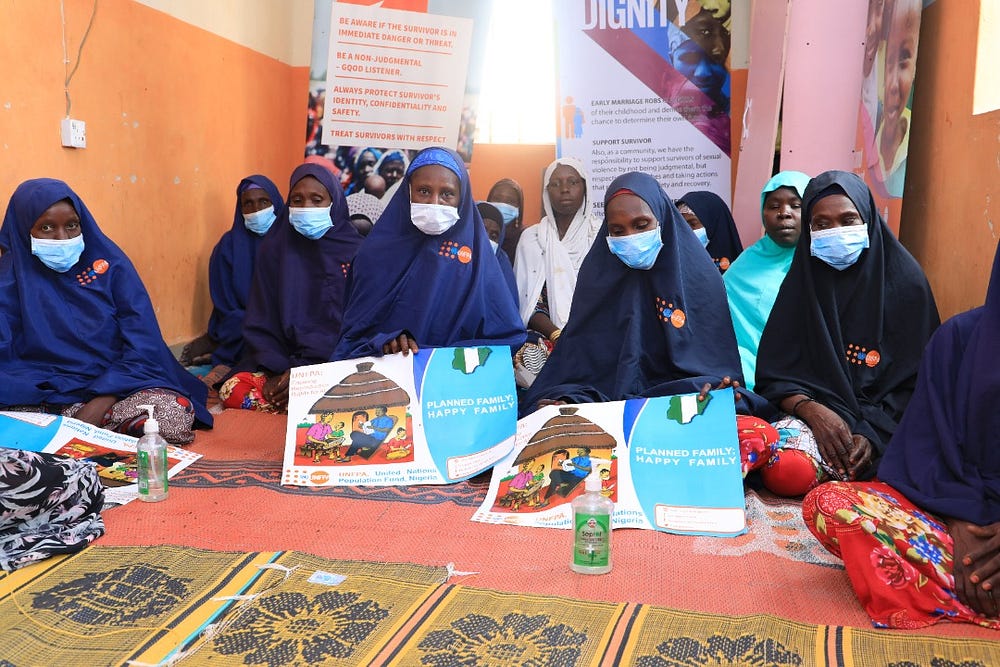
Other members of the community received needs-based assistance, while culturally sensitive groups received individual psychosocial support at UNFPA-supported safe spaces and women empowerment centres in the Maiduguri Metropolitan Council, Jere and Konduga LGAs.
The 5-year project ended in 2021 and to ensure that its gains were sustained, UNFPA is now providing technical support to the Borno State Government to develop sustainability plans aligned with the Borno State Development Plan.
